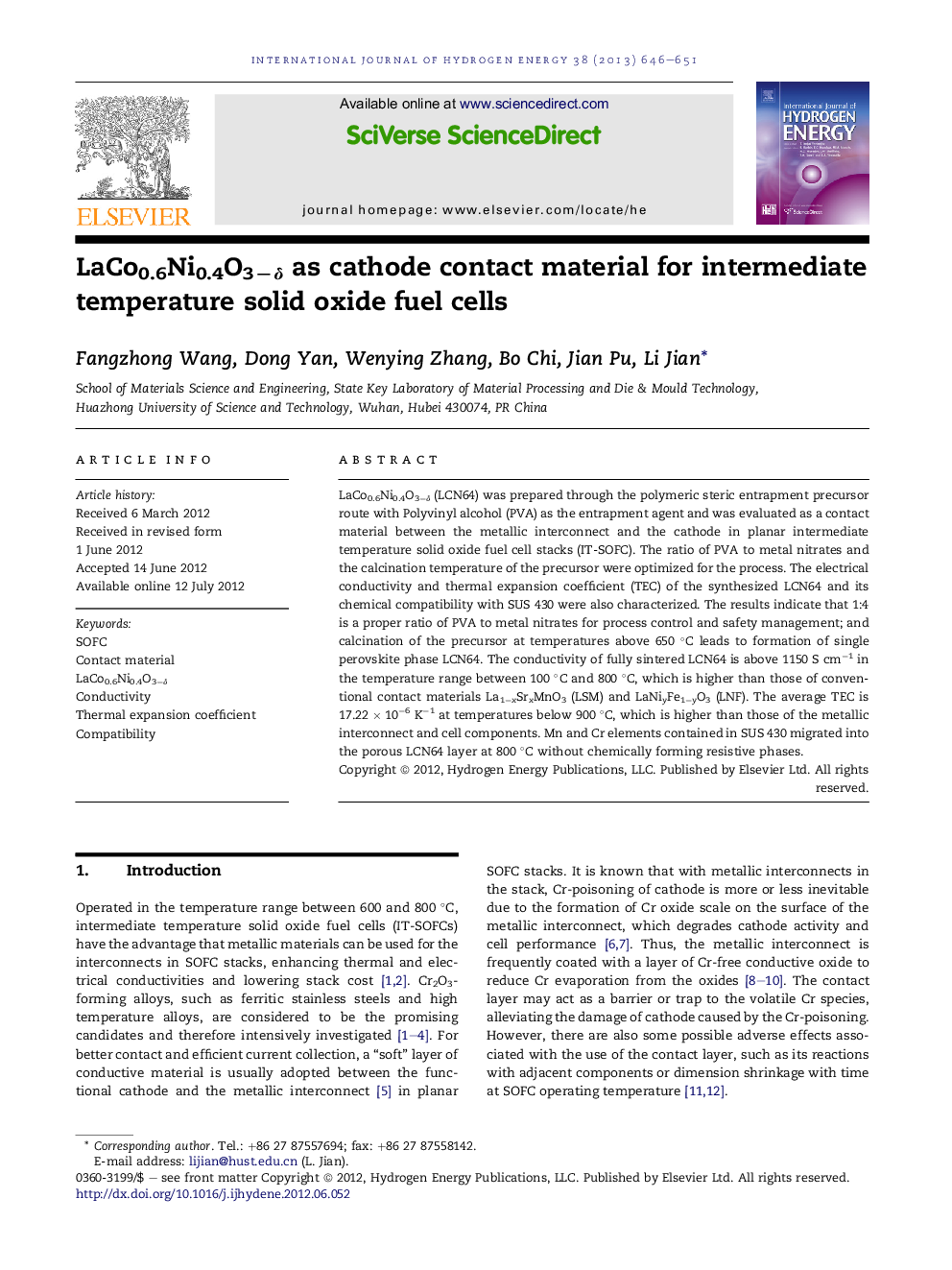| Article ID | Journal | Published Year | Pages | File Type |
|---|---|---|---|---|
| 1274414 | International Journal of Hydrogen Energy | 2013 | 6 Pages |
LaCo0.6Ni0.4O3−δ (LCN64) was prepared through the polymeric steric entrapment precursor route with Polyvinyl alcohol (PVA) as the entrapment agent and was evaluated as a contact material between the metallic interconnect and the cathode in planar intermediate temperature solid oxide fuel cell stacks (IT-SOFC). The ratio of PVA to metal nitrates and the calcination temperature of the precursor were optimized for the process. The electrical conductivity and thermal expansion coefficient (TEC) of the synthesized LCN64 and its chemical compatibility with SUS 430 were also characterized. The results indicate that 1:4 is a proper ratio of PVA to metal nitrates for process control and safety management; and calcination of the precursor at temperatures above 650 °C leads to formation of single perovskite phase LCN64. The conductivity of fully sintered LCN64 is above 1150 S cm−1 in the temperature range between 100 °C and 800 °C, which is higher than those of conventional contact materials La1−xSrxMnO3 (LSM) and LaNiyFe1−yO3 (LNF). The average TEC is 17.22 × 10−6 K−1 at temperatures below 900 °C, which is higher than those of the metallic interconnect and cell components. Mn and Cr elements contained in SUS 430 migrated into the porous LCN64 layer at 800 °C without chemically forming resistive phases.
► LaCo0.6Ni0.4O3−δ (LCN64) was synthesized using PVA as the entrapment agent. ► Conductivity and thermal expansion coefficient of the LCN64 determined. ► Compatibility between LCN64 and SUS 430 interconnect characterized.
